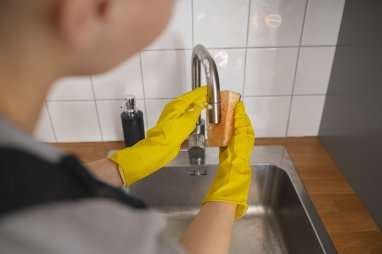A recent study published in the journal Science of The Total Environment found that shells can be a breeding ground for potentially dangerous microorganisms. Scientists have identified the presence of bacteria capable of causing serious illnesses, including wound infections, pneumonia, and legionellosis. This was reported by gazeta.ru.
The scientists focused on biofilms, complex communities of microorganisms that form on surfaces. They studied the composition of biofilms in homes and hospital rooms, collecting samples from surfaces around taps and drains.
Of particular concern among the microorganisms found was the presence of Legionella. These bacteria, known for their ability to cause severe respiratory illnesses, are commonly found in natural bodies of water, spas, soil and air conditioning systems.
Interestingly, the microbial diversity of biofilms in ordinary homes was greater than in hospitals. This may be due to more intensive cleaning regimes in healthcare facilities. However, such microbial diversity may pose a particular risk to patients receiving medical care at home.
In light of these findings, experts recommend paying special attention to hygiene at home. Hospitals already have strict protocols in place: sinks, light switches, and door handles are recommended to be disinfected twice a day.
Similar precautions can be useful at home to reduce the risk of spreading potentially dangerous bacteria.













